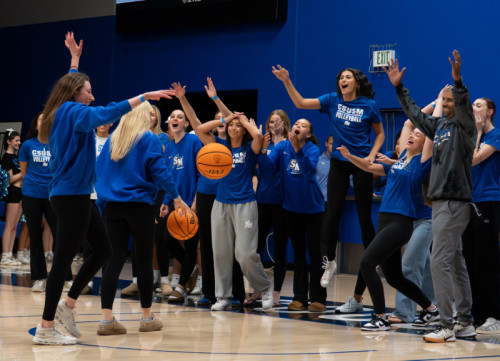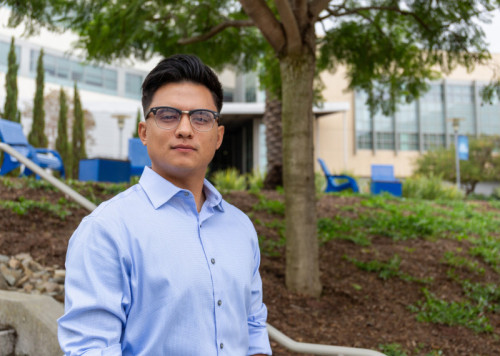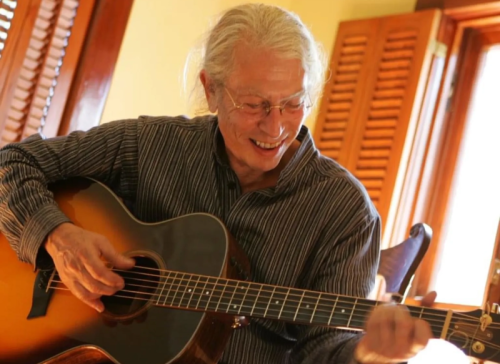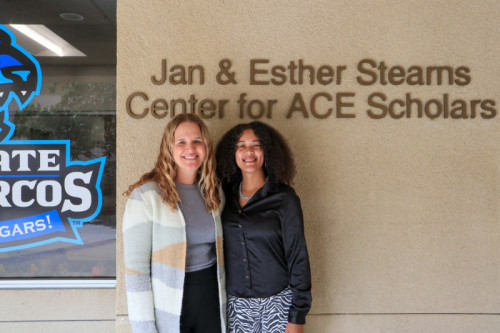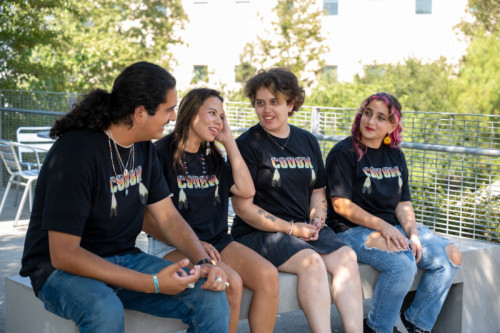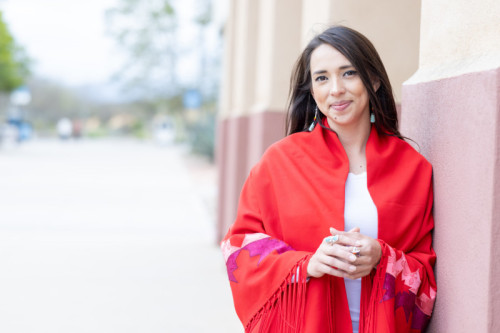Photo Highlights From Cougar Madness
30
October
2025
|
14:00 PM
America/Los_Angeles
Cougar Madness 2025. Photo by Amanda Vannucci
Cougar Madness 2025. Photo by Brandon Pollard
Cougar Madness 2025. Photo by Amanda Vannucci
Cougar Madness 2025. Photo by Amanda Vannucci
Cougar Madness 2025. Photo by Amanda Vannucci
Cougar Madness 2025. Photo by Amanda Vannucci
Cougar Madness 2025. Photo by Amanda Vannucci
Cougar Madness 2025. Photo by Amanda Vannucci
Cougar Madness 2025. Photo by Amanda Vannucci
Cougar Madness 2025. Photo by Brandon Pollard
Cougar Madness 2025. Photo by Brandon Pollard
Cougar Madness 2025. Photo by Brandon Pollard
Cougar Madness 2025. Photo by Brandon Pollard
Cougar Madness 2025. Photo by Brandon Pollard
Cougar Madness 2025. Photo by Brandon Pollard
"; items += "
"; items += "
"; items += "
" + val['title'] + "
"; if(val['subtitle']){ items += "
" + val['subtitle'] + "
"; } items += "
"; if ((val['showpublishdate'] !== 0 && showPublishDateHeadlineSetting) || showPublishCityHeadlineSetting) { items += '
'; if (val['publishcity'] && showPublishCityHeadlineSetting) { items += '
' + val['publishcity'] + '
'; } if (val['showpublishdate'] !== 0 && showPublishDateHeadlineSetting) { items += "
"; items += "
" + date_month + "
"; items += "
" + date_day + "
,"; items += "
" + date_year + "
"; items += '
'; items += ' | '; items += '' + val['publish_time'] + ''; items += 'America/Los_Angeles'; items += '
'; items += '
'; } items += '
'; } items += "
" + val['message'] + "
"; items += "
Read more
"; items += "
"; items += ""; items += tags_items; items += multimedia_count; items += "
"; } }); items +="
"; if (1 > 1) { pp_jquery(".pp_blockheadlines_items-7556169").append(items); } else { pp_jquery(".pp_blockheadlines_items-7556169 .pp-headline-block").hide().css("opacity","0"); pp_jquery(".pp_blockheadlines_items-7556169").append(items); pp_jquery(".pp-headline-block:visible").animate({"opacity":"1"},300); } }); } pp_jquery(window).on('load', function() { /** * targets calcEqualHeights function (modules_v2h.js) * calculates consistent height for all visible items per block module */ pp_jquery('.pp_blockheadlines_items-7556169 .pp-headline-block').each( function() { PP_MODULES.calcEqualHeights(this); }); }); pp_jquery(document).ajaxComplete(function() { /** * when using block item nav button calcEqualHeights * function (modules_v2h.js) will be executed */ pp_jquery('.pp_blockheadlines_items-7556169 .pp-headline-block').each( function() { PP_MODULES.calcEqualHeights(this); }); });
Latest News Release
- 'Accidental Archivist' Helps Mexican Communities Learn Their HistoryFernando Amador likes to call himself an accidental archivist. Long before he was an assistant professor of history at Cal State San Marcos, Amador was a doctoral student at New York’s Stony Brook University who was doing field work for his dissertation in Mexico. Hoping to comb through the historical archive of the people of Temacapulin, a small town northeast of Guadalajara, he was surprised to learn that they didn’t have one. What they had was thousands of documents piled haphazardly into boxes, all too vulnerable to environmental damage in the event of, say, a flood. Helping to organize the town’s historical record wasn’t part of Amador’s dissertation, but his conscience wouldn’t allow him to return to New York with the papers in such disarray. So he gave himself a crash course in archival studies – which traditionally is more the domain of librarians – and, with the aid of some volunteers from the community, he led an effort in 2022 to whip the archive into shape. During the three months that Amador was in Temacapulin, word of his project spread to neighboring towns. It just so happened that the Indigenous community of San Juan de la Laguna (La Laguna for short) was in the midst of an effort to organize its own historical documents. The people behind it invited Amador to town, and he discovered that this project involved almost twice as many documents (nearly 20,000), stretching back more than a century earlier, to the late 1600s. “When I saw that this project was a different beast compared to the first one,” Amador said, “I knew we needed more resources and more help.” After a hiatus of a few years – during which he finished his dissertation, earned his Ph.D. from Stony Brook and was hired by CSUSM – Amador finally found himself in position to revisit the La Laguna archive. Last spring, he received a $15,000 grant from the Endangered Archives Programme of the British Library, the largest library in the world and the home of such storied pieces as the original Magna Carta. Over the summer, Amador spent two weeks in La Laguna, and the funding not only paid for his trip, but allowed him to purchase laptops and hire and train five members of the community as full-time workers on the 10-week project. “I never imagined I’d end up in this field, but it truly offers incredible opportunities,” he said. “I get to meet new people and develop skills in an area where, surprisingly, historians often know nothing about – archives. You’d think that’s odd, like chemists not learning about the equipment in their own labs. Now that I’m doing this work, I realize just how striking that gap is between what historians do and the archival side of their profession.” Amador streamlined and accelerated a process that had progressed in fits and starts since his initial visit to La Laguna three years earlier. In helping gather the materials, he found that many of them were stored in unfavorable conditions, such as sacks, cardboard boxes and bound together with string. Many also were marked with water stains. As the group surveyed and created an inventory of the documents, they encountered samples both mundane (countless tax receipts) and captivating. One example was a paper record of a legal battle in the early 20th century between a town resident and an immigrant from Lebanon. “How did a man from Lebanon end up in this little town?” Amador said. “That whole story sounds fascinating. Discovering history through these documents is, in a way, truly thrilling.” Beyond just the work itself, the biggest challenge that Amador faced was gaining the trust of an Indigenous community that traditionally has had a fraught relationship with the local government and the outside world at large. “With me coming from the United States, people wondered, ‘What are his priorities? Why is he here helping us? What’s in it for him?’ ” he said. “It really came down to open communication – reassuring them that I’m doing this because I love the work and involving them in the process as much as possible.” As the grant-funded initiative wraps up this fall, Amador is considering a return to La Laguna in January to review the finished product in person. And as the domino effect continues, the second project might lead to a third one. Another nearby Indigenous community heard about the work Amador led in La Laguna and requested his support for its archival project, which features more digitized material instead of old, yellowing papers. For that one, which remains in the preliminary stages, he is coordinating with classically trained archivists, namely Sean Visintainer and Jennifer Ho of the CSUSM University Library. He’s also talking with Visintainer and Ho about the possibility of introducing and teaching a history course in archival studies. “I really did stumble into this type of work. I still am even hesitant to call myself an archivist,” Amador said. “I'm learning so much, and there's still so much for me to learn. But it does seem like this is where my career is headed – bringing archival studies and history together in some way.” Media Contact Brian Hiro, Communications Specialist bhiro@csusm.edu | Office: 760-750-7306
- Local Folk Musician Donates Archive to CSUSM LibraryA local folk musician who has been performing for more than a half-century and was heavily influenced by Woody Guthrie has donated his personal archive to Cal State San Marcos. The Special Collections department of the CSUSM University Library recently received the archive of Joel Rafael, a singer-songwriter from San Diego County who has been making music with the Joel Rafael Band and as a solo artist for over 50 years. Rafael began performing in showcases and small clubs around Southern California in the early 1970s. He opened shows throughout the southwestern United States for artists including Crosby, Stills and Nash, Sheryl Crow, Laura Nyro, Taj Mahal, Iris DeMent, Emmylou Harris and John Lee Hooker. The legendary Jackson Browne wrote of Rafael: “Joel Rafael’s songs are filled with passion and compassion; passion for social justice and compassion for those among us who have to struggle for a place at the table of American prosperity. His voice is unmistakably his own – big, warm and strong – and a conductor for the human emotions that connect us all.” No influence is more obvious in Rafael’s work than that of Guthrie. Rafael has been a featured performer at the Woody Guthrie Folk Festival in Oklahoma for all but one of its 28 years, and he has five “co-writes” with Guthrie using lyrics given to him by Guthrie’s daughter, Nora. Rafael and his wife, Lauren (a CSUSM alumna), were referred to Special Collections to discuss the disposition of his archive last spring by CSUSM music professor Merryl Goldberg. After an assessment of the collection, Rafael made the commitment to donate his archive to the CSUSM Library; about one-third of the physical materials have been moved to the library to date. “For a few years now, I’ve thought about and wondered what will become of my life’s work spanning 60 years," Rafael said. "I am honored to have found a permanent home for my archives in the Kellogg Library Special Collections at Cal State San Marcos. North San Diego County has been my home for more than half a century. I have watched the evolution of the campus since its founding in 1989. I am heartened that the CSUSM core values of inclusion, culture and stewardship align with my own. Knowing that my work will be protected and available to the public gives me a feeling of peace, resolution and gratitude.” The collection includes master recordings in various formats; documentation of all of Rafael’s (and collaborators’) performances and contracts; scrapbooks and news articles of his life and musical history; flyers, posters and photographs for/of performances and festivals; and fan interactions including letters, email messages and social media posts. “I feel fortunate to know Joel and Lauren and to have the opportunity to steward Joel’s collection," said Jen Fabbi, a Special Collections librarian who has been working with the Rafaels to acquire the collection. “Joel has dedicated his life to social justice and activism through music, and that commitment, along with his talent and persistence, shines throughout this collection. I am excited for students and scholars to have access to it.” Special Collections recently recorded the first part of an oral history interview with Rafael, in which he discusses his early musical influences, his participation in the 1960s counterculture movement and the beginnings of his success in the music industry. A treasure trove of information about Rafael and his music can be found at https://joelrafael.com. For more info, contact Fabbi at jfabbi@csusm.edu. The University Archives and Special Collections staff work closely with donors to identify materials of research interest to be preserved. Although not all papers and records fall within the collecting scope of the unit, please send us an email to discuss a potential donation at archives@csusm.edu. In addition, you can support the mission of Special Collections to preserve North County history by making a donation.
- Kinesiology Student's Inspiring Journey from Foster Care to GraduationSometimes even the smallest things can be taken for granted. Many students have never had to worry about affording a meal or squeezing in hours of sleep between their work and school schedules, but that’s not the case for Alexus Foster. Alexus was in and out of the foster care system from the time she was 2 years old. She has lived in countless different states and attended 17 different schools. However, with the help of Cal State San Marcos’ ACE Scholars Services program she is graduating this winter with a bachelor’s degree in kinesiology and a minor in dance. “ACE has had a really big impact on me,” said Alexus, “and for that I'm very grateful.” Alexus always knew she wanted to pursue higher education because she felt it would help her avoid the challenges her mother faced. Pregnant at 15 years old, Alexus’ mother struggled to raise a child. After her mom was kicked out of Alexus’ grandmother’s house, Alexus was sent to New York to live with her great grandfather. Her mother booked a return flight to California, and Alexus’s childhood was on a new course. Growing up, Alexus experienced the hardships of persistent custody battles and court-mandated counseling therapy. She was constantly moving among different households and family members. Alexus is 29 years old and the oldest of six siblings (the youngest being 15). Alexus was 16 when her siblings entered the foster care system for the first time. Alexus hoped to shield them from the reality that would be foster care. But Alexus and her siblings were apart for almost a year, which was one of the hardest times of her life. Alexus and her siblings have always had a strong bond, celebrating every holiday together at their grandparents’ house growing up. “I love my siblings, and I just want to be the best big sister they could have. If they ever need anything, they can call me,” Alexus said. As complicated as Alexus’ life was growing up, additional struggles began to arise as an adult. After moving out of her mom’s house at 19, trying to complete her degree while managing two jobs to afford her rent became a strenuous task. Alexus was attending Riverside Community College when she learned about ACE Scholars Services. It’s a program that would soon change Alexus’ life for the better. ACE Scholars Services helps former foster youth pursue higher education by providing services and support systems. ACE knows that helping foster youth earn a degree will provide them the tools and self-determination they need to succeed later in life. That’s been the case for Alexus. Alexus worked the overnight shift at the Ontario airport, ending her shift at 7 a.m., then driving from Rancho Cucamonga for her hour-plus commute to campus. When she hadn’t slept all night, ACE provided her a space to get rest during the day. When she didn’t have enough money to afford food or school supplies, ACE was there. When her car broke down, ACE was there. In October 2024, Alexus lost her job and was evicted, marking the start of a difficult time. However, ACE was once again there to help. “The support that I get from ACE, everything that I've been able to get through in my life is because ACE has always helped me, especially Leigh,” Alexus said. Leigh Quijada has been the director of ACE Scholars Services for the last two years after previously working with the program for 13 years as a counselor. She has played a huge role in Alexus’ life by not only guiding her but helping her get through every obstacle she has faced. “Persistence” and “resilience” were the two words Leigh used to describe Alexus. “I think Alexus might be the only student I’ve had who has been through it all and overcome everything," Leigh said. Leigh has been there for Alexus since the start of her journey at CSUSM and has watched her grow. When Alexus was put on academic probation last year because she had to prioritize going to work to pay her bills rather than attending class, Leigh did everything in her power and helped Alexus get re-enrolled. “She is probably one of the biggest people in my life,” Alexus said. “I wouldn’t be getting my bachelor's without Leigh; she’s definitely my rock.” After the difficult years Alexus endured as a foster child, she is graduating this winter and moving to Texas to begin her master’s studies in kinesiology. She has played sports since she was young and hopes to continue her love for that field as an athletic trainer for professional athletes. “People don't know what I've been through to get to this point,” Alexus said. “It's going to be a very big accomplishment.” Media Contact Eric Breier, Interim Assistant Director of Editorial and External Affairs ebreier@csusm.edu | Office: 760-750-7314
- Seeking Healthy Adults to Participate in Exercise Training StudyHealthy adults ages 18 - 64 years old who exercise less than two days per week are needed to participate in an exercise training study conducted at CSUSM. Participants will complete 2 sessions per week of exercise for 12 weeks, during which time you must maintain your lifestyle. Upon completion of the study, you will be paid $250.00. Please email Dr. Todd A. Astorino, Dept. of Kinesiology, at astorino@csusm.edu for more information about the study.
- Celebrating Native American Heritage MonthThroughout November, Cal State San Marcos will be celebrating and recognizing the contributions of American Indians with a series of special events as part of Native American Heritage Month. CSUSM invites all members of the campus community to participate in the following events. Pow Wow Dance Workshops Tuesday, Nov. 4, 11, 18, 6-8 p.m., Serenity Circle Learn the history, meaning and movement of pow wow dancing in this interactive workshop led by Kiara Flores. Celebrate culture, community and tradition through dance. Chow on Deck: United in Service - A Celebration of Native American Veterans Tuesday, Nov. 4, noon, Epstein Family Veterans Center Deck American Indian Student Center NAHM Kick-Off Event Friday, Nov. 7, 5-8 p.m., USU Amphitheater CSUSM’s American Indian Student Center invites the campus community to celebrate the start of Native American Heritage Month. The evening will include traditional bird singing, pow wow dancing and storytelling along with food prepared by Chef Carmen of Island Smoke N’ Grill. CSUSM 2nd Annual Social Gathering Thursday, Nov. 20, 3-6:30 p.m., Mangrum Track & Field The event will feature traditional bird singers and dancers, along with local vendors showcasing Native art and jewelry. All are welcome to join in this celebration of community and culture. Media Contact Eric Breier, Interim Assistant Director of Editorial and External Affairs ebreier@csusm.edu | Office: 760-750-7314
- Alumna Finds Purpose in Advocacy for Native Children and FamiliesAs Maya Goodblanket reflects on her time as a student, she vividly remembers the day she found the California Indian Culture and Sovereignty Center at Cal State San Marcos. Goodblanket was nervous about checking out the CICSC. She didn’t know anyone on campus and was unsure about going inside. But she mustered the courage to open the door, and all of her anxiety disappeared as she was instantly welcomed. Little did she know that she was meeting mentors that day who would help her achieve the career she has today. Through intentional support from faculty and staff and inclusive spaces like the CICSC, CSUSM equips students to lead with identity, purpose and impact. “I was looking for that connection to my culture, and I found it on campus,” said Goodblanket, who received a bachelor’s degree in psychological science and a Master of Social Work at CSUSM. “I'm an out-of-state Native. My tribe is from Oklahoma, so I always am searching to reconnect with tribal communities and tribal culture.” Goodblanket, a member of the Cheyenne and Arapaho Tribes of Oklahoma, serves as an Indian Child Welfare Act (ICWA) court advocate for the Valley Center-based Indian Health Council, which provides health and wellness services for American Indian communities in north San Diego County. Any families involved in a child welfare case, such as a juvenile dependency proceeding, can rely on Goodblanket for support. "I work with moms and dads who are struggling with a variety of challenges," Goodblanket said. "One is substance abuse. My job is to support families in doing what they need to do to reunite with their kids if they’re not currently in a place to have them back. I also work with caregivers and family members who have taken placement of the children." Goodblanket’s cultural connection is at the heart of her advocacy. Under the ICWA, child welfare agencies must prioritize placing American Indian children with relatives or within their tribal communities whenever possible. “Natives are still removed at a disproportionate rate by child welfare services,” Goodblanket said. "When children are disconnected from their culture, their long-term outcomes aren't as strong as those who remain connected. That’s why the cultural component is such a vital part of the work I do." As a student, Goodblanket participated in CSUSM’s inaugural “Beyond the Stereotype" campaign to raise awareness about cultural appropriation and the harm caused by stereotypes. Goodblanket and other students were featured on posters across campus that challenged common misconceptions about underrepresented groups. She emphasized the need to raise awareness about issues like missing and murdered Indigenous women and the harmful sexualization of Native women through stereotypes and costumes, which contribute to broader societal perceptions and injustice. "Maya demonstrates how education driven by purpose and cultural knowledge creates lasting change,” said Joely Proudfit, chair of the American Indian studies department and director of the CICSC. “CSUSM remains grateful for her transformative impact, particularly through her leadership in the award-winning 'Beyond the Stereotype' campaign, where she challenged cultural appropriation with authenticity and understanding.” Goodblanket didn’t expect the campaign to have such a large impact, and its widespread presence across campus was surprising but meaningful. "I think it was really important to take that stance and just stand up,” she said. “And I think that's what college is all about.” Media Contact Eric Breier, Interim Assistant Director of Editorial and External Affairs ebreier@csusm.edu | Office: 760-750-7314



